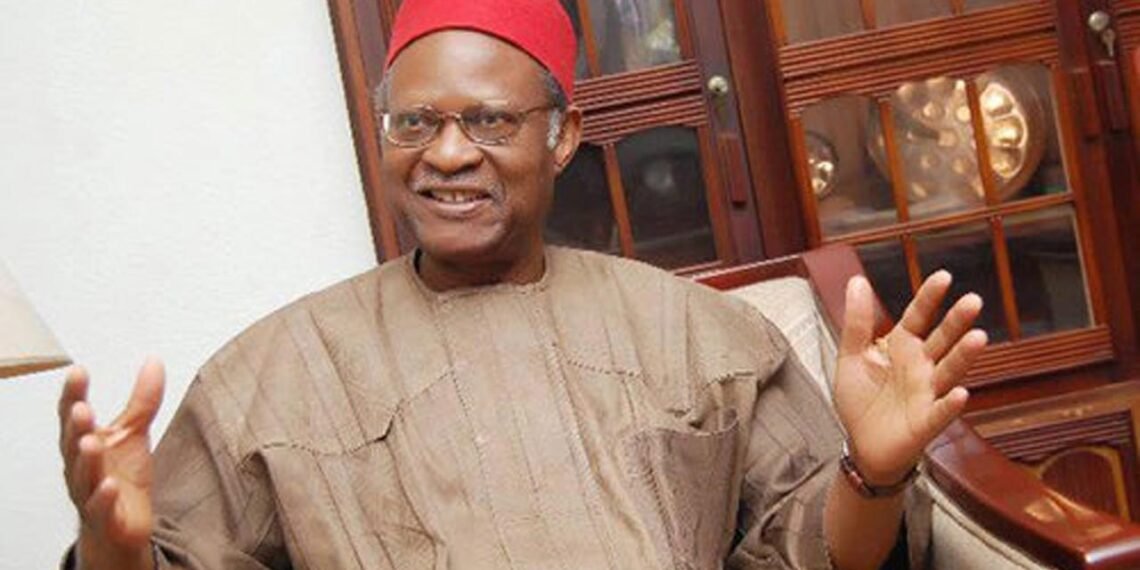The former Commonwealth Secretary-General, Chief Emeka Anyaoku has issued a bold call for the complete abolition of Nigeria’s 1999 Constitution, asserting that the country cannot unlock its true potential under this governing document. Speaking at the launch of The Noble Academic and Patriot: A Biography of Emeritus Professor Akinjide Osuntokun, Anyaoku highlighted the 1999 Constitution as a primary obstacle to Nigeria’s unity, stability, and sustainable development.
Reflecting on Nigeria’s political structure before the 1966 military coup, Anyaoku emphasized that the nation was on a path to unity and rapid development under a more decentralized system. “Nigeria was more united, more stable, and developing towards its potential,” he stated, contrasting the positive progress of that era with the current stagnation under the unitary system adopted in 1966.
Anyaoku warned that the 1999 Constitution stifles Nigeria’s cultural and regional diversity, limiting the nation’s capacity to develop as a cohesive unit. “As long as Nigeria continues to operate under this constitution, even an angel like Gabriel cannot save it,” he declared, stressing that the document’s centralization hampers effective governance and fuels division.
Read also: Delta to sanction erring contractors over failure to mobilize to site
Highlighting how other pluralistic nations have flourished through true federalism, Anyaoku cited India, Canada, and Switzerland as successful examples of federal systems that embrace diversity. He contrasted these countries with others that failed to decentralize power, leading to disintegration, such as Yugoslavia, Czechoslovakia, and Sudan.
Anyaoku passionately called for a constitution “truly crafted by Nigerians” that would mirror the principles of the 1960/63 Constitution, agreed upon by Nigeria’s founding fathers. He urged the Federal Government and National Assembly to act swiftly, insisting that only a genuinely federal constitution can address Nigeria’s pressing challenges, from economic struggles to insecurity and corruption.
Asserting that Nigeria’s issues are deeply rooted in the constitution, Anyaoku said, “Not even Angel Gabriel or Mala’ika Jibril” could resolve these challenges under the 1999 Constitution. He urged Nigerian leaders to embrace this universal lesson, suggesting that a return to true federalism is essential for the country’s unity and progress.






